
April 18, 2024
Nearly two years after the Inflation Reduction Act, a federal law which included tax credits, subsidies, and federal funding for clean energy, was passed, adults are most likely to report that they don’t know enough about the law to assess its impacts on the U.S. economy, climate change, U.S. workers, or inflation. Democrats are more likely than either independents or Republicans to think the law has had positive impacts.
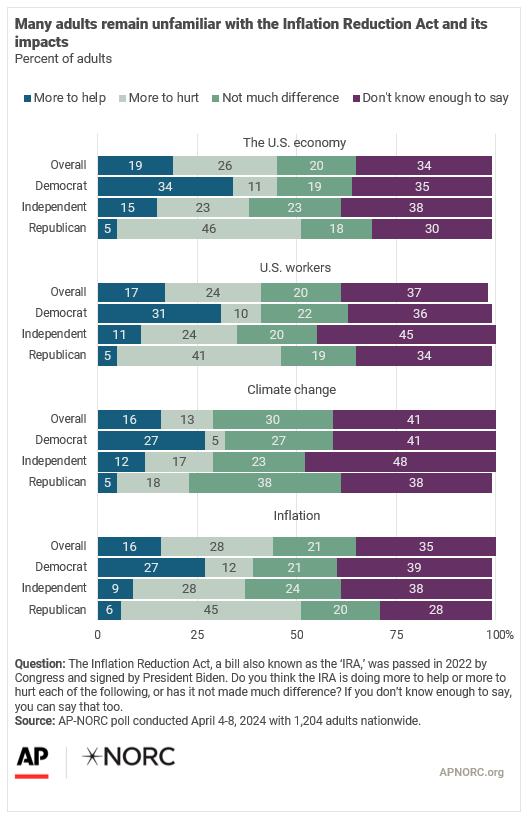
More adults think various provisions of the IRA have helped rather than hurt people like them. However, an equal number say those provisions have made no difference.
About a quarter report that they’ve benefited from tax credits to add solar panels to their homes, tax credits for renewable energy projects, or incentives for companies to manufacture clean energy technologies. However, fewer say they’ve benefited from tax credits for electric vehicles, federal funding for clean energy projects in low-income communities, subsidies for energy efficient appliances, or restrictions on leases for oil and gas drilling. And about 4 in 10 don’t know enough to have an opinion about the impact of these provisions.
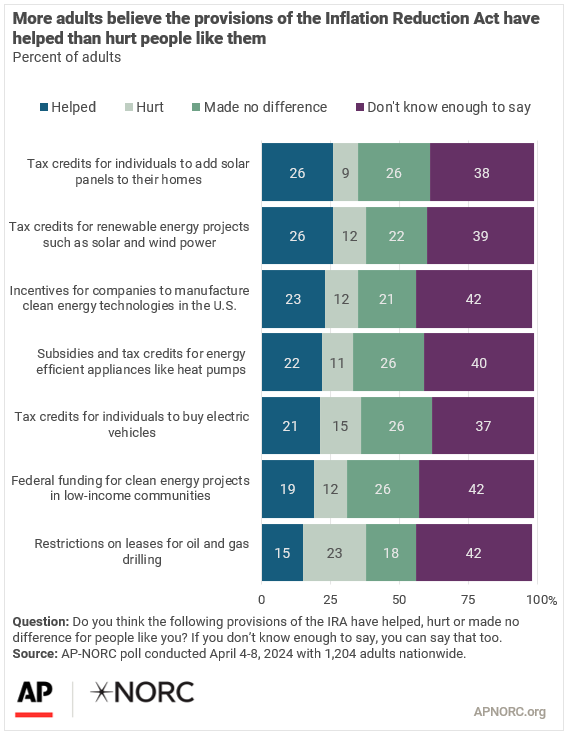
Generally, while more adults believe these provisions will help to address climate change than hurt, a higher share report they don’t know enough to say. For each of the items asked about, Democrats are more likely than independents or Republicans to believe these provisions will be beneficial in addressing climate change.
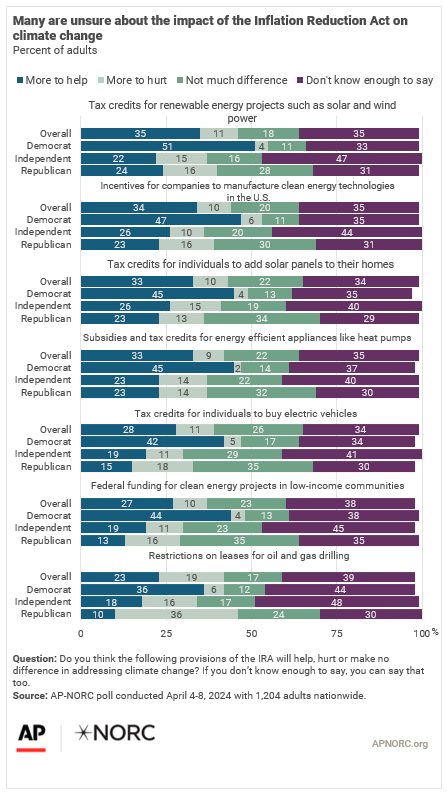
There is little consensus among adults on whether the impact of electric vehicles has been good or bad. About two-thirds say that electric vehicles have had neither a good nor bad impact on them personally. The public is more likely to say the impact on the U.S. economy has been neutral rather than positive or negative. The public is equally likely to say the impact of electric vehicles on U.S. automakers or U.S. workers has been good or bad.
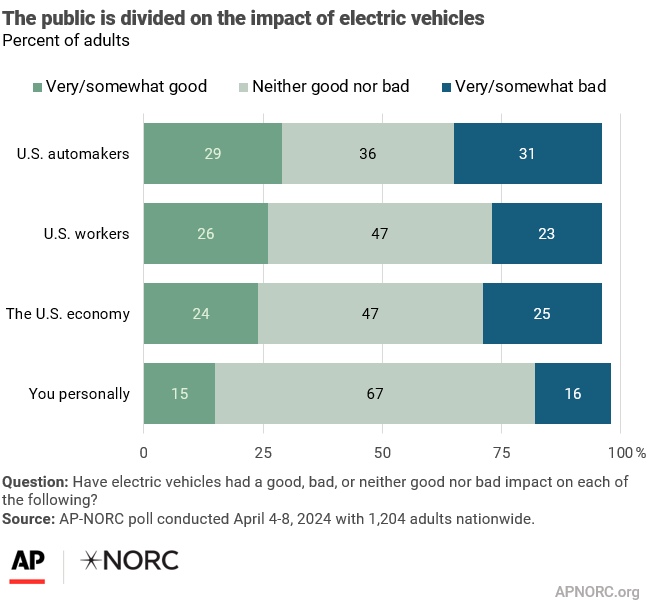
Forty-five percent of the public has become more concerned about climate change over the past year, while another 45% percent say their level of concern has not changed. Just 10% are less concerned than they were last year. In September 2023, 52% of the public reported becoming more concerned over the past year.
Democrats are more likely to say they have become more concerned than either independents or Republicans (63% vs. 43% vs. 24%).
More broadly, a majority of the public believes climate change is happening (71%), similar to past AP-NORC surveys. Just 11% believe climate change is not happening, while 18% are unsure. Of those who believe it is happening, 65% say it is mostly caused by human activities, 12% think it is caused mostly by natural changes, and 22% think it is driven equally by human activities and natural changes. Democrats are more likely than Republicans to say both that climate change is happening (88% vs. 54%) and that is primarily driven by human activities (75% vs. 43%).
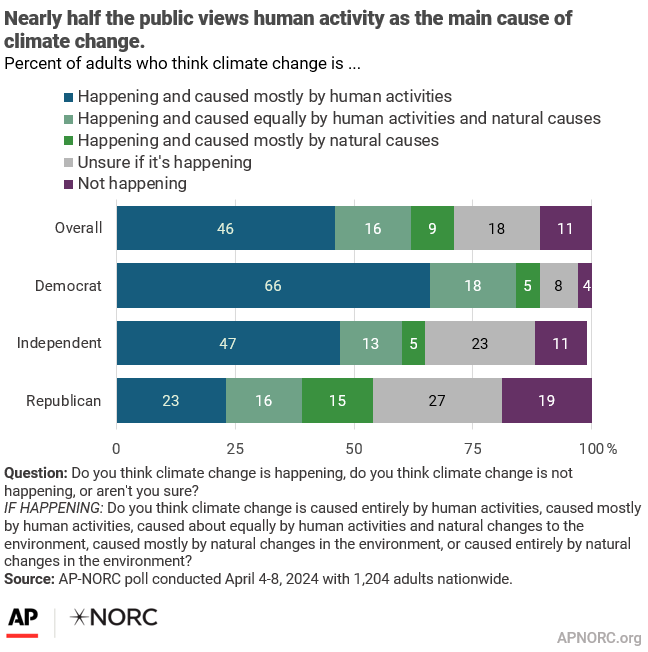
Sixty-seven percent of the public believes large businesses and corporations, oil and gas companies, and developed or industrialized countries outside the U.S. are not doing enough to address climate change. Most also agree developing countries, state and local officials, and individuals are not doing enough.
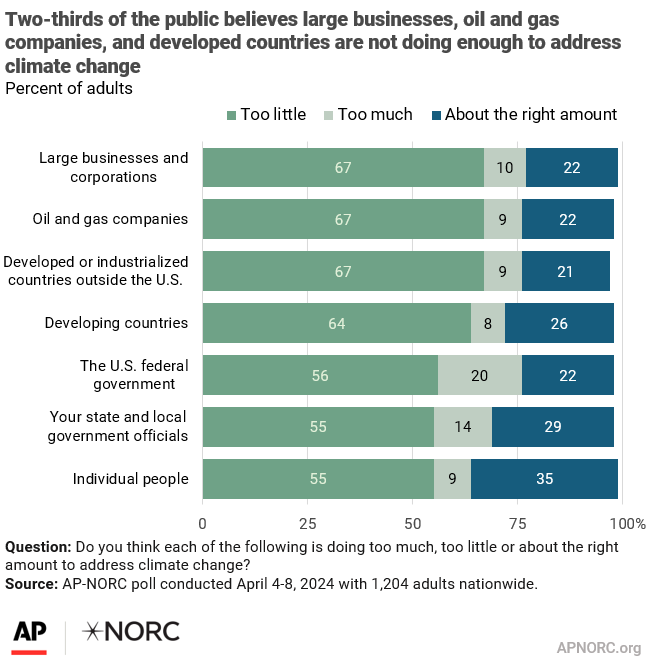
Relatedly, 8 in 10 think that large businesses and corporations, oil and gas companies, developed or industrialized countries outside the U.S., and the U.S. federal government have at least some responsibility for addressing climate change. The vast majority also believe that their state and local governments, developing countries, and individual people are at least somewhat responsible.
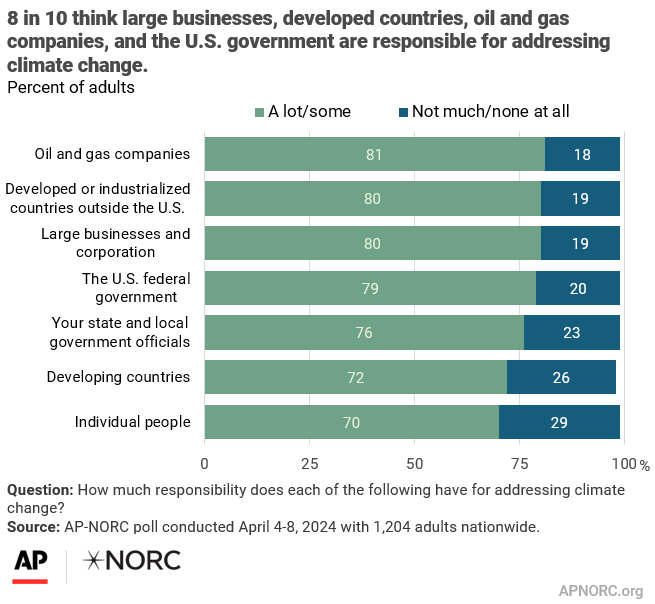
Although a majority of the public believes that the federal government has a responsibility to address climate change, most do not trust either the Democrats or Republicans in Congress nor Donald Trump or President Biden to address it. However, more trust the Democrats (44%) and President Biden (42%) than the Republicans (28%) or Donald Trump (33%).
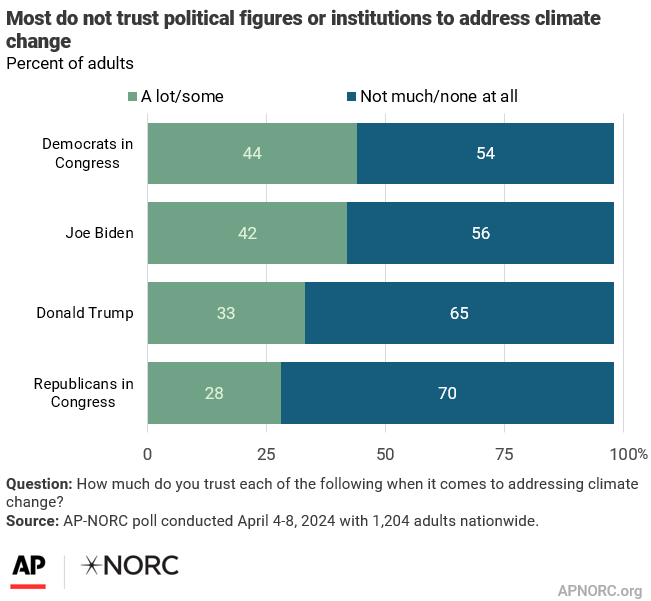
A majority believe that it is extremely or very important for the federal government to invest in new environmentally friendly technologies and enforce current environmental regulations. About half say it is important to restrict companies’ greenhouse gas emissions, provide incentives for companies or individuals to reduce their emissions, or pass stricter environmental laws and regulations. Fewer support the federal government providing incentives for individuals to buy electric vehicles, building a national network of public electric vehicle charging stations, or restricting individuals’ greenhouse gas emissions.
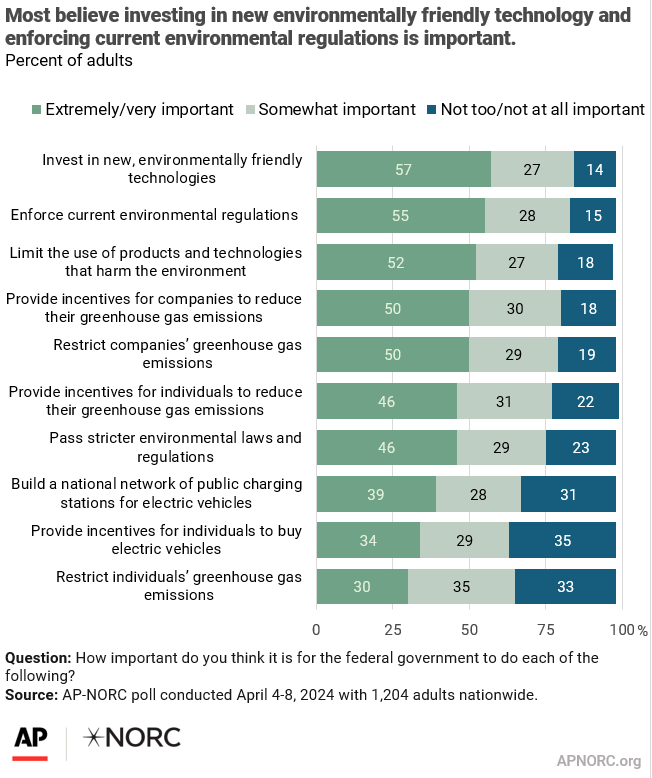
The nationwide poll was conducted April 4-8, 2024 using the AmeriSpeak® Panel, the probability-based panel of NORC at the University of Chicago. Online and telephone interviews using landlines and cell phones were conducted with 1,204 adults. The margin of sampling error is +/- 3.9 percentage points.
- Suggested Citation: AP-NORC Center for Public Affairs Research. (April 2024). https://apnorc.org/projects/few-report-personally-benefitting-from-the-inflation-reduction-act/







